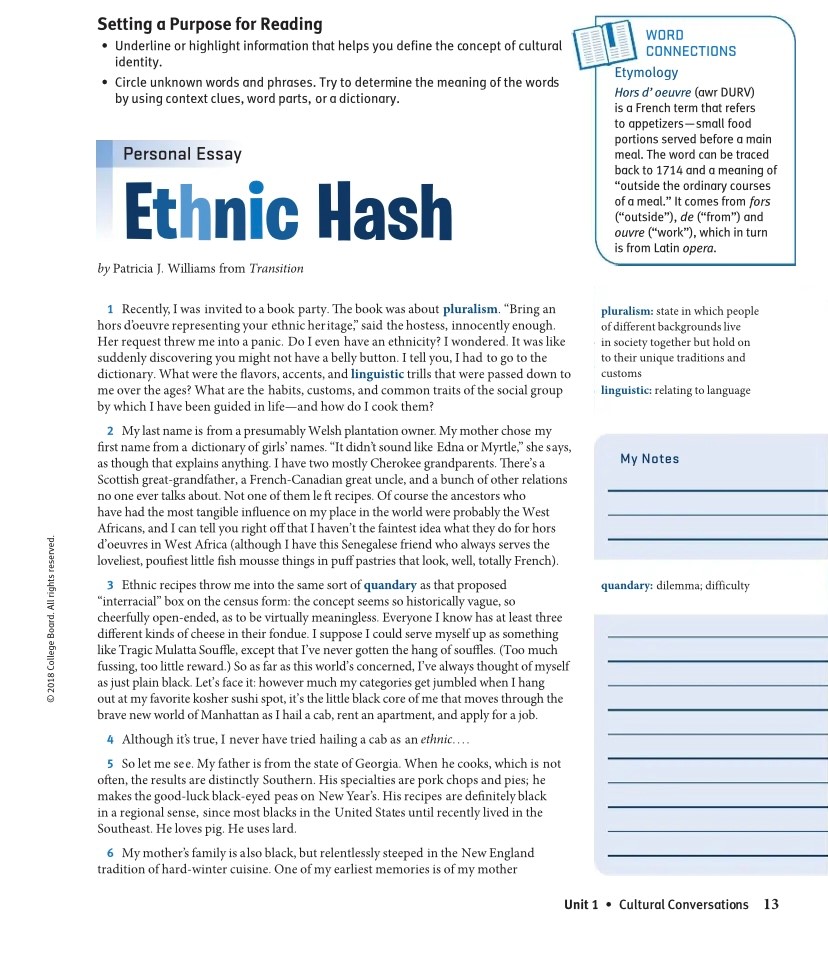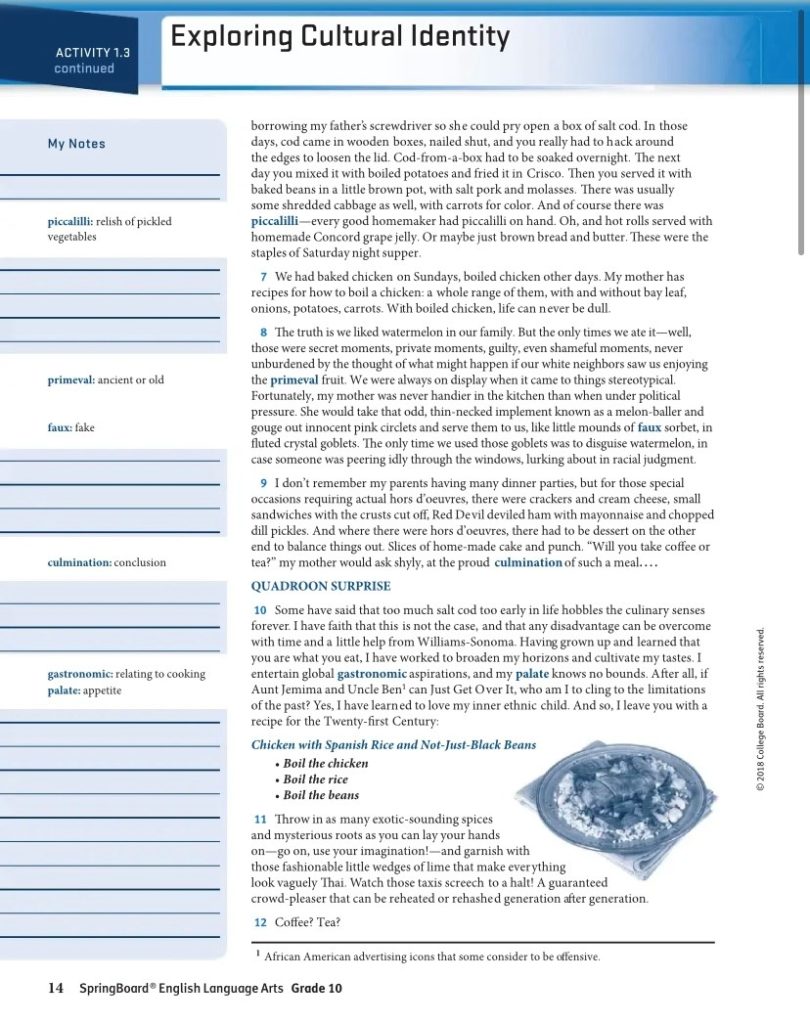
Greeley West High School teacher assigns essay “Ethnic Hash” written by Critical Race Theory scholar
Incidents
A concerned community member reached out to Parents Defending Education and provided an assignment given to students in a tenth grade English class at Greeley West High School that included an essay that appeared to be written by an advocate of Critical Race Theory (CRT). The essay was titled “Ethnic Hash” and was written by Patricia J. Williams. The assignment was to proofread this essay. The essay starts by discussing food dishes and eventually moves to the topic of race. Patricia J. Williams wrote a paper in 1999 titled “Inflecting Critical Race Theory.” The abstract of the paper explains:
In addition, the emergence of the Critical Legal Studies movement provided Critical Race theorists with an innovative lexicon and practice which allowed them to develop a critique of traditional race analysis and U.S. law. Patricia Williams has played a key role in the formation of the C.R.T. movement and is concerned with many of the C.R.T. themes: the understanding that traditional civil rights law has benefited whites more than blacks, the ‘call to context’, and the critique of liberalism by the assertion that racism is routine and not aberrational.
The essay is about the author being invited to a book party to bring a dish representing her “ethnic heritage.” The author discusses having Cherokee, Scottish, and West African ancestry. She then explains: “Ethnic recipes throw me into the same sort of quandary as that proposed ‘interracial’ box on the census form: the concept seems so historically vague, so cheerfully open-ended, as to be virtually meaningless.” She eventually states that “so as far as this world’s concerned, I’ve always thought of myself as just plain black.”
She then complains about eating watermelon. She states: “The truth is we liked watermelon in our family. But the only times we ate it – well, those were secret moments, private moments, guilty, even shameful moments, never unburdened by the thought of what might happen if our white neighbors saw us enjoying the primeval fruit.” She explained that she was afraid someone might be watching her family eat watermelon in “racial judgment.”


Stay Informed
